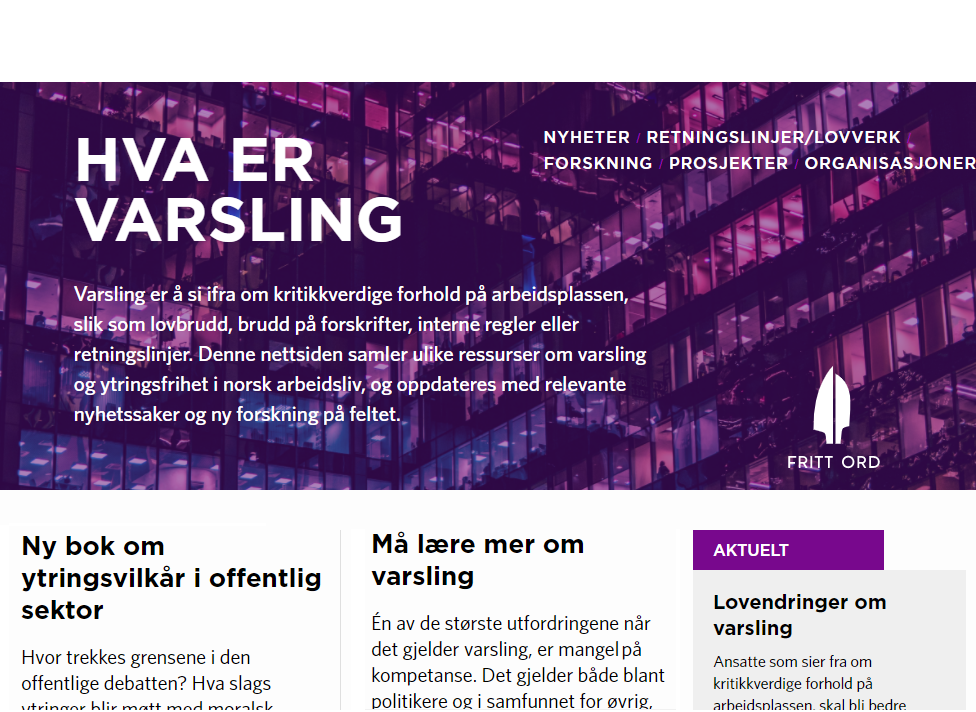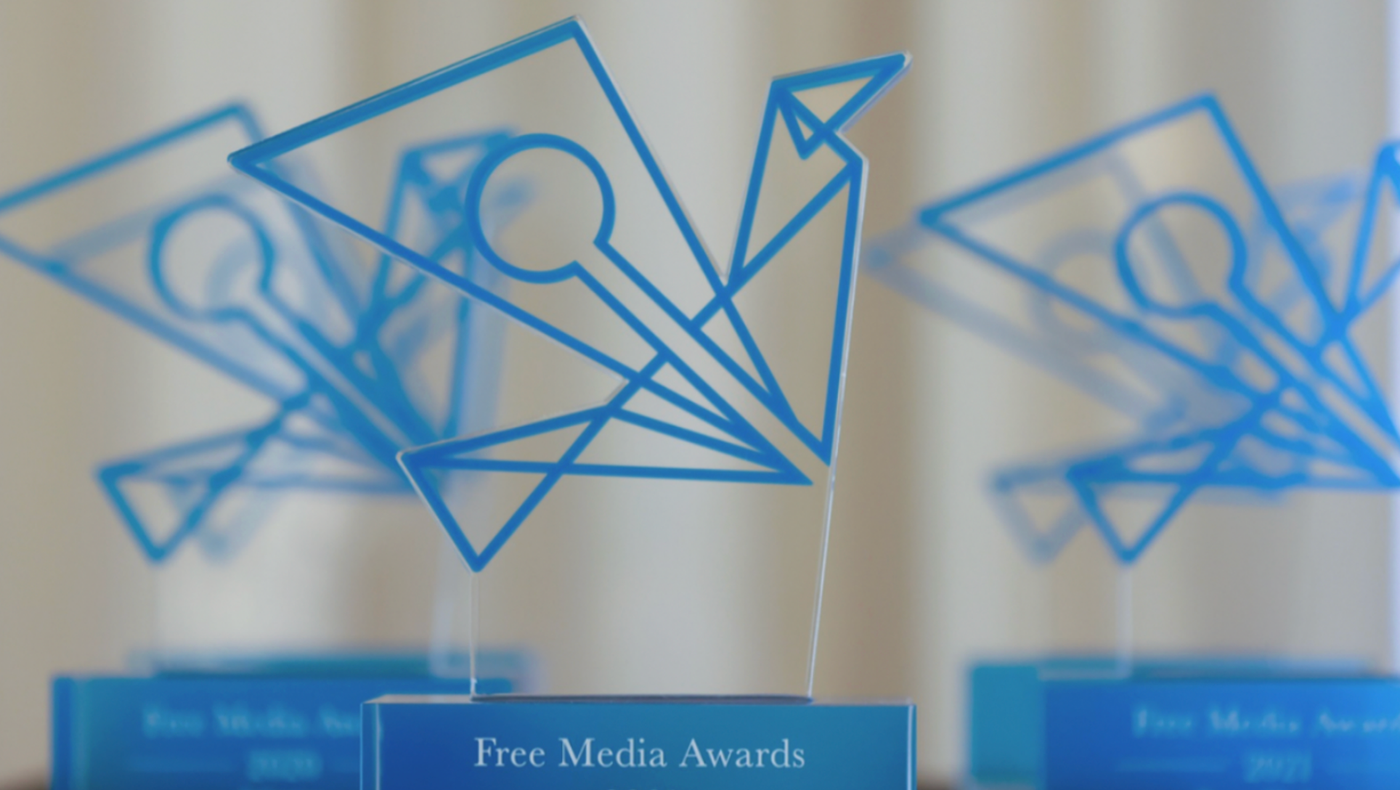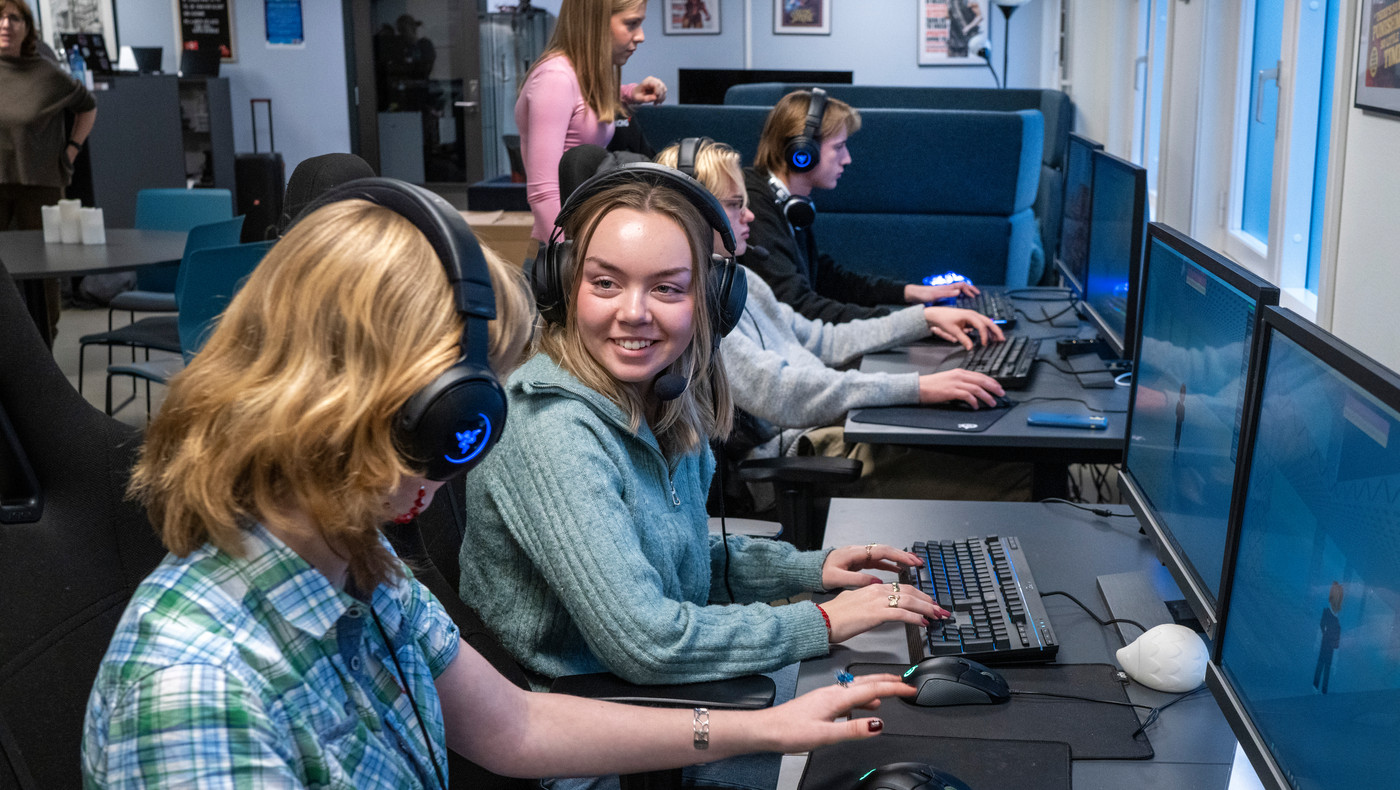New website about whistle-blowing and freedom of expression at work
This week, the Fritt Ord Foundation launched a new website about whistle-blowing and freedom of expression at work. Hvaervarsling.no features a collection of relevant information about whistle-blowing and freedom of expression at work all in one place. Here, you will find information about research and news, guidelines and legislation, as well as links to relevant organisations that are working with whistle-blowing. This information is currently spread across many different websites. Fritt Ord has recognised the need for a comprehensive list of the information available about whistle-blowing and freedom of expression in Norway’s world of work.
What is whistle-blowing?
Whistle-blowing at work is when someone reports unlawful conditions or circumstances worthy of criticism in the workplace. This may refer to a breach of legislation or regulations, a breach of guidelines, or being witness to something that is not reasonable or ethically tenable.
Whistle-blowing may be perceived as risky. Roughly one in four whistle-blowers is met with reprisals/sanctions, according to a Fafo report from 2016. All cases are not equally comprehensive or dramatic, but the whistle-blowing process is felt to be serious and difficult for most whistle-blowers.
Whistle-blowing and freedom of expression
The Fritt Ord Foundation is a private non-profit foundation that aspires to promote freedom of expression, public debate, art and culture. The Foundation has long been concerned about employees’ access to the social debate and by the climate for freedom of expression and criticism at work in general.
Whistle-blowing is one way of exercising freedom of expression. Internal whistle-blowing (within an enterprise), external whistle-blowing (to the authorities or the general public) and employees’ access to participate in the public debate are all affected. Good conditions for freedom of expression in the workplace presuppose opportunities to express concerns and criticism without risking reprisals. Meanwhile, it is important that employees can use their subject, profession or social engagement to form opinions on issues that may be related to the sector in which they work.
Fritt Ord and whistle-blowing
Whistle-blowing is inevitably subject to public debate. Important questions include: What are concerns being raised about? What happens to the whistle-blowers? How do Norwegian workplaces deal with whistle-blowing? Fritt Ord has previously supported several projects related to whistle-blowing and the protection of whistle-blowers, including conferences, books and research reports. With support from Fritt Ord, both Fafo and the Institute for Social Research have studied the protection of whistle-blowers in Norway in recent years.
In addition, three prominent whistle-blowers been awarded the Freedom of Expression Foundation Prize. Per-Yngve Monsen received the Freedom of Expression Foundation Prize in 2008 when, as an employee of a large international corporation, he expressed concerns about unlawful invoicing related to public contracts. Robin Schaefer and Jan Erik Skog were awarded the Freedom of Expression Foundation Prize in 2015. Schaefer issued warnings about problems with the investigation into the death of 8-year-old Monika Sviglinskaja. Through his work at UniBuss, Skog learned about serious cases of corruption, and he blew the whistle on them.
The website Hvaervarsling.no is operated by the Fritt Ord Foundation, but cannot give advice on specific whistle-blowing cases. The website features a collection of different resources on whistle-blowing and freedom of expression in the world of work in Norway, and it is updated with relevant news items and new research in the field.
Fritt Ord and Fafo will organise a breakfast meeting on whistle-blowing, freedom of expression and the culture of freedom of expression in the public sector on Thursday, 22 June, at 8.30 a.m. Read more about the event here. Register here: registering@frittord.no.




